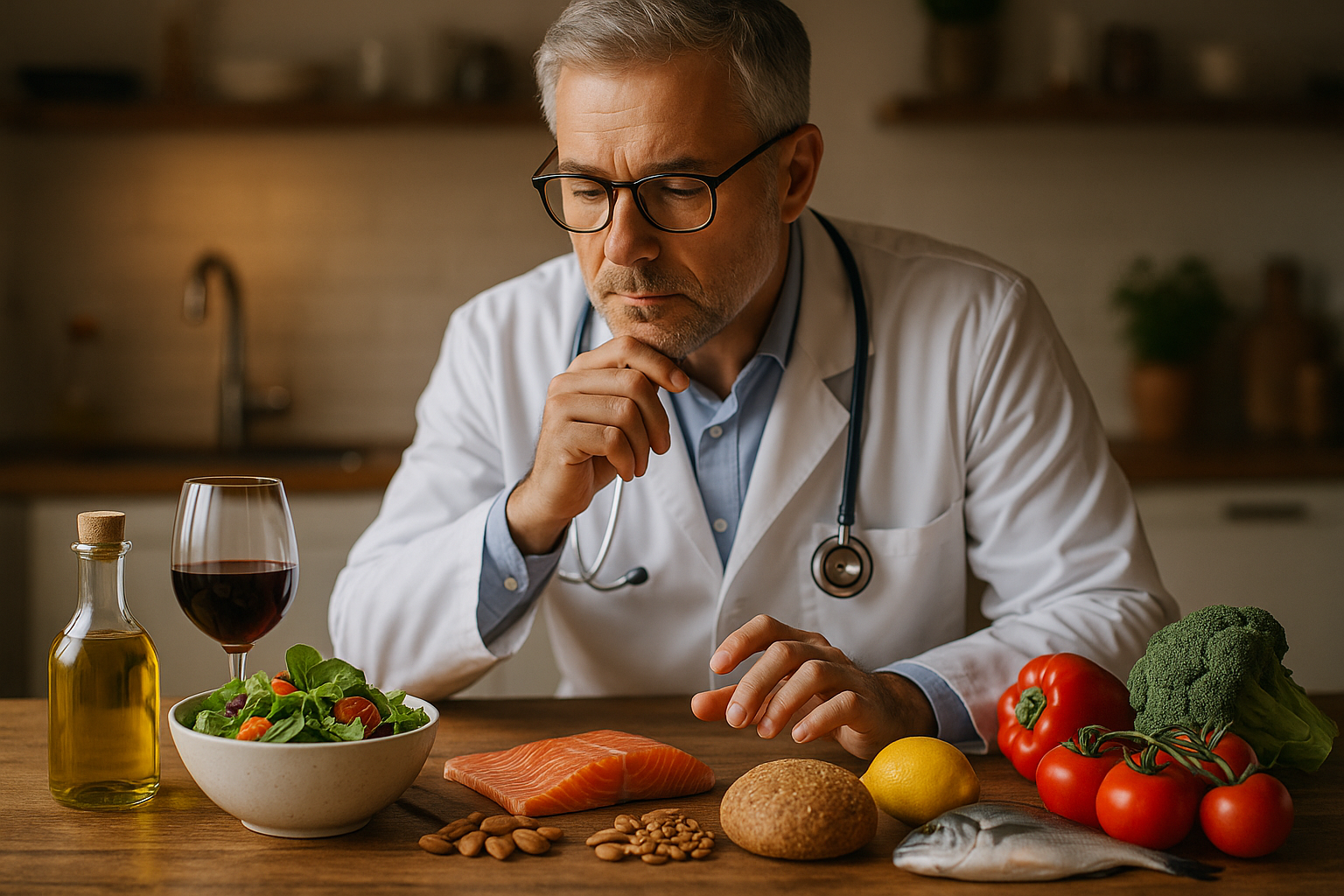Macular Degeneration: Foods to Eat and Avoid
Macular degeneration is a common eye condition that primarily affects older adults, leading to loss of vision in the center of the visual field. As a progressive disease, it can significantly impact daily activities and quality of life. While there is no cure, certain dietary choices can influence the progression of the disease. Understanding what foods to include and avoid in your diet can play a crucial role in managing macular degeneration.

Age-related vision conditions affect millions of people worldwide, particularly those over the age of 50. These progressive eye conditions damage the macula, the central part of the retina responsible for sharp, detailed vision. While genetics and age are primary risk factors, emerging research shows that nutrition plays a crucial role in both prevention and management. The foods you consume can either support your eye health or contribute to oxidative stress and inflammation that accelerates vision loss.
What Foods Help With Macular Degeneration Treatment?
Leafy green vegetables stand at the forefront of eye-protective foods. Spinach, kale, collard greens, and Swiss chard contain high levels of lutein and zeaxanthin, two carotenoids that accumulate in the retina and act as natural sunglasses, filtering harmful blue light. Studies suggest that consuming these vegetables regularly may reduce the risk of advanced macular degeneration by up to 40 percent. Aim for at least one serving daily, whether raw in salads, steamed as a side dish, or blended into smoothies.
Fatty fish rich in omega-3 fatty acids also provide substantial benefits. Salmon, mackerel, sardines, and tuna contain DHA and EPA, essential fats that support retinal cell structure and reduce inflammation. Research indicates that people who eat fish twice weekly have a lower risk of developing age-related vision conditions compared to those who rarely consume seafood. If you do not eat fish, consider plant-based omega-3 sources like flaxseeds, chia seeds, and walnuts, though they provide a different form of omega-3 that the body must convert.
Colorful fruits and vegetables contribute antioxidants that combat oxidative damage in the eyes. Orange and yellow produce like carrots, sweet potatoes, bell peppers, and citrus fruits deliver vitamin C, vitamin E, and beta-carotene. Berries, particularly blueberries and blackberries, offer anthocyanins that strengthen blood vessels in the retina. Eggs provide both lutein and zeaxanthin in a highly bioavailable form, making them an excellent addition to a vision-friendly diet.
How Do Eye Health Supplements Support Vision?
While whole foods should form the foundation of your nutritional approach, supplements can help fill gaps when dietary intake falls short. The Age-Related Eye Disease Study (AREDS and AREDS2) established specific formulations that may slow progression in people with intermediate or advanced retinal conditions. These formulations typically include vitamin C, vitamin E, zinc, copper, lutein, and zeaxanthin in precise amounts.
However, supplements should not replace a balanced diet. They work best as complementary support alongside nutrient-rich foods. Before starting any supplement regimen, consult with an eye care professional who can assess your specific needs based on the stage and type of condition you have. Some individuals may require higher doses of certain nutrients, while others might need to avoid specific ingredients due to other health conditions or medications.
Quality matters when selecting supplements. Look for products that have been third-party tested for purity and potency. The label should clearly list the amounts of each ingredient, and formulations should align with AREDS2 recommendations if you have been diagnosed with retinal issues. Keep in mind that supplements take time to show effects, often requiring several months of consistent use.
Which Eye Vitamins Are Most Important?
Vitamin A supports overall eye health and night vision, though excessive supplementation can be harmful. Most people obtain adequate vitamin A through diet by consuming foods rich in beta-carotene, which the body converts to vitamin A as needed. Vitamin C acts as a powerful antioxidant that protects eye tissues from free radical damage and supports collagen production in the cornea and blood vessels.
Vitamin E works synergistically with vitamin C to provide antioxidant protection. Found in nuts, seeds, and vegetable oils, this fat-soluble vitamin helps maintain cell membrane integrity in the retina. Zinc plays a critical role in transporting vitamin A from the liver to the retina and supports the function of enzymes involved in visual processes. Good dietary sources include oysters, beef, pumpkin seeds, and legumes.
B vitamins, particularly B6, B9 (folate), and B12, may reduce homocysteine levels, an amino acid linked to increased risk of vision problems when elevated. These vitamins are found in whole grains, leafy greens, legumes, and animal products. A balanced intake of all these vitamins through food and targeted supplementation when necessary provides comprehensive support for eye health.
What Foods Should You Avoid for Eye Health?
Processed foods high in refined carbohydrates and added sugars can spike blood glucose levels and promote inflammation throughout the body, including the eyes. White bread, pastries, sugary cereals, and sweetened beverages should be limited or eliminated. These foods have a high glycemic index, which research links to increased risk of advanced retinal damage.
Saturated and trans fats found in fried foods, processed meats, and commercially baked goods contribute to oxidative stress and may accelerate retinal damage. Replace these unhealthy fats with sources of monounsaturated and polyunsaturated fats like olive oil, avocados, and nuts. Excessive sodium intake can raise blood pressure, potentially affecting blood flow to the retina, so minimize processed and packaged foods that contain hidden salt.
Alcohol consumption should be moderate at most. While some studies suggest light to moderate drinking may have neutral or slightly protective effects, heavy alcohol use increases oxidative stress and depletes nutrients essential for eye health. If you choose to drink, limit intake to no more than one drink per day for women and two for men.
How Does Diet Impact Overall Vision?
The connection between nutrition and vision extends beyond retinal conditions to encompass other eye problems like cataracts, diabetic retinopathy, and dry eye syndrome. A diet rich in antioxidants, healthy fats, and essential nutrients supports the intricate structures of the eye and maintains optimal function throughout life. Blood vessels in the retina are particularly sensitive to the effects of diet, as they require consistent blood flow and protection from inflammatory damage.
Maintaining a healthy weight through balanced nutrition also reduces the risk of conditions that indirectly affect vision, such as diabetes and cardiovascular disease. These systemic health issues can compromise blood supply to the eyes and accelerate degenerative processes. Hydration plays an often-overlooked role as well, supporting tear production and overall eye moisture.
Consistency matters more than perfection. Making gradual, sustainable changes to your eating patterns yields better long-term results than attempting drastic overnight transformations. Focus on adding beneficial foods rather than solely restricting problematic ones, and remember that every positive dietary choice contributes to preserving your vision.
Conclusion
Managing age-related vision conditions through nutrition involves both incorporating protective foods and avoiding those that promote inflammation and oxidative stress. Leafy greens, fatty fish, colorful produce, and targeted supplementation provide essential nutrients that support retinal health. Meanwhile, limiting processed foods, unhealthy fats, and excessive sugar helps reduce factors that accelerate vision loss. Combined with regular eye examinations and medical treatment when necessary, a thoughtful dietary approach can help preserve your sight and maintain quality of life as you age.
This article is for informational purposes only and should not be considered medical advice. Please consult a qualified healthcare professional for personalized guidance and treatment.




